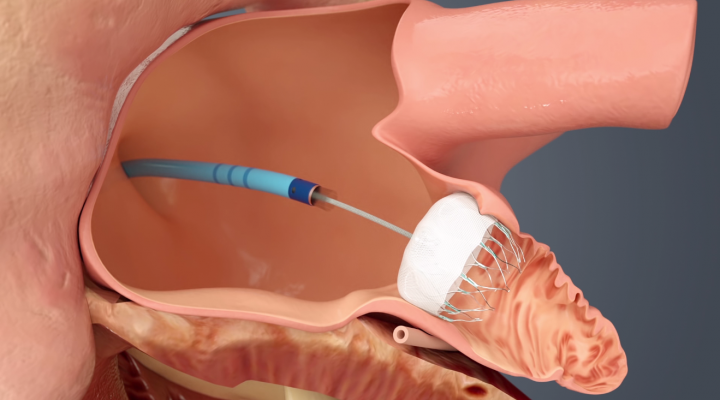
Implantation of the Boston Scientific Watchman LAA occluder.
December 29, 2015 — The American College of Cardiology (ACC) launched the new Left Atrial Appendage Occlusion (LAAO) Registry Dec. 16. It will to capture data on a new class of medical devices used in left atrial appendage (LAA) occlusion procedures.
The LAA is a muscular pouch connected to the left atrium of the heart where blood can gather and lead to blood clots that can cause stroke in patients with atrial fibrillation. Left atrial appendage occlusion or closure procedures and devices can reduce stroke risk as an alternative to anticoagulation with medications among patients with non-valvular atrial fibrillation.
The LAAO Registry will help assess real-world procedural indications and outcomes as well as short- and long-term safety of procedures and devices for closing the left atrial appendage. Paul D. Varosy, M.D., FACC, FAHA, FHRS, who is director of cardiac EP at VA Eastern Colorado Health Care System, is the lead physician for the data set development work group for the LAAO Registry.
The registry will serve not only as the formal FDA-mandated post-approval study for the Boston Scientific Watchman device, but it is also expected to serve as a long-term clinical registry for all patients undergoing occlusion of the left atrial appendage, regardless of the device used.
“It is exciting that we are launching this registry at the beginning of implementation of this transformative therapy,” Varosy said. “Clinicians, hospitals, payers, and especially patients will benefit from a clear understanding of how these devices are being used in real-world practice. A registry like this can provide important tools in ensuring that the quality of care is as high as it can be for patients receiving these devices.”
The new clinical registry program joins eight other programs that comprise the National Cardiovascular Data Registry, the ACC's suite of cardiovascular data registries that help hospitals and clinical practices measure and improve the quality of care they provide. Additionally, an atrial fibrillation ablation registry, officially the AFib Ablation Registry, is expected to launch in 2016.
For more information: acc.org


 July 31, 2024
July 31, 2024 









